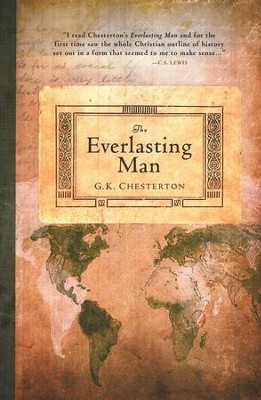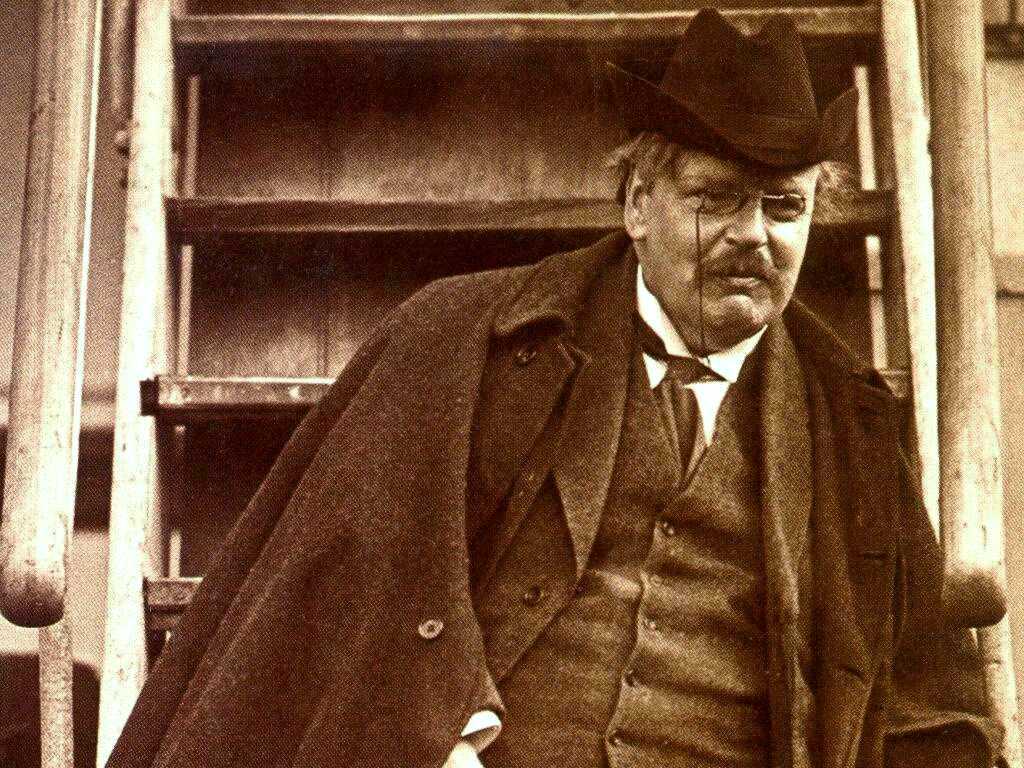
Each morning, in my devotions, I’ve set aside some time to work my way through G. K. Chesterton’s The Everlasting Man, which outlines the history of man’s beliefs as seen through mythology, philosophy, and then, finally, through Christianity—God’s direct revelation to man.
Chesterton is quite quotable, yet all of those quotes that people love to use are embedded in larger contexts that require some real thought and meditation. That’s why I have chosen not to rush through this work. I savor it piece by piece, not wanting to miss anything important.
I’m near the end now, and what I read this morning leads me to want to share at least one tidbit. As he draws his comparison of mythology, philosophy, and Christianity to a conclusion, Chesterton notes, first, that unlike the other two, Christianity is a revelation. It is a vision of reality given from the heart and mind of God. The true faith is a vision; mythology is more like a daydream. A vision, he says, “comes very rarely, possibly that it comes only once; and secondly, that it probably comes once and for all. A day-dream,” however, “may come every day. A day-dream may be different every day.”
The settled reality of the vision from God is materially different from the daydream of mythologies.
Neither is the true faith like the philosophies that men concoct. “It is not one of those simplifications which resolve everything into an abstract explanation; as that everything is recurrent; or everything is relative; or everything is inevitable; or everything is illusive.”
Men try to explain the universe with these simplifications, which are, in fact, over-simplifications that rest on wrong foundations.
Pessimists, says Chesterton, see the world as all black: evil dominates, and “admit a speck or two of stardust more or less accidental, or at least in the literal sense insignificant.” Optimists, on the other hand, see all things as white, with evil only as “dots or smudges” that can be explained away.
Finally, there are the “dualists” who believe “that life is like a chess-board in which the two are equal, and can be as truly be said to consist of white squares on a black board or of black squares on a white board.”

A Christian, though, knows that existence, as created by God, is good. Yet “something tells him that it is unmanly and debased and even diseased to minimise evil to a dot or even a blot.” What, then, is the result for a Christian who sees both the good and the evil?
These vague but healthy feelings, if he followed them out, would result in the idea that evil is in some way an exception but an enormous exception; and ultimately that evil is an invasion or yet more truly a rebellion.
He does not think that everything is right or that everything is wrong, or that everything is equally right and wrong.
But he does think that right has a right to be right and therefore a right to be there, and wrong has no right to be wrong and therefore no right to be there.
God made everything good and right. Evil is a rebellion against all the goodness and rightness that God has made. It doesn’t belong in His world. It is an invasion. Christians are to fight against that invasion and uphold that which is right—righteousness. That is why we are told the following:
Finally, be strong in the Lord and in His mighty power. Put on the full armor of God, so that you can make your stand against the devil’s schemes. For our struggle is not against flesh and blood, but against the rulers, against the authorities, against the powers of this world’s darkness, and against the spiritual forces of evil in the heavenly realms.
Ephesians 6:10-12
